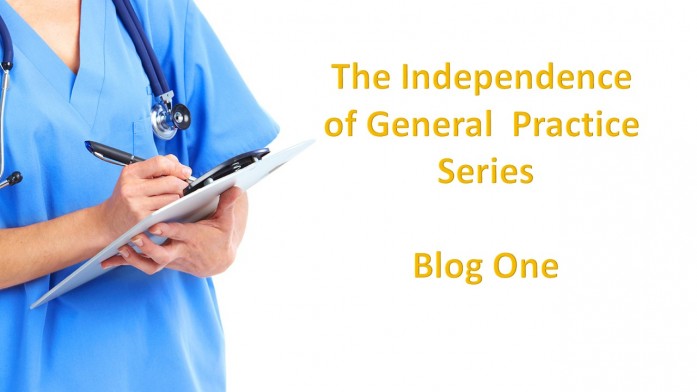Ben Gowland introduces an exciting new series from Ockham Healthcare:
“In the last couple of years I have written a few articles about the independence of general practice. The current review of the partnership model being carried out at the behest of government, which is considering what has been the bedrock of general practice for so many years, will inevitably have to consider the issue of independence. This prompted me to bring together and update what I have produced so far, along with some new thoughts, to create an autumn series of articles on this topic. Over the course of 5 articles throughout August I will consider the threats to the independence of general practice (from within general practice, from the wider system, and from the review itself), reflect on its importance, and identify what might be needed for it to be preserved.”
In this first blog Ben considers the impact that fewer and fewer GPs choosing to become partners will have on the independence of general practice:
Without GP Partners General Practice will lose its Independence
For me, one of the biggest strengths of general practice is its independence. It contracts with the NHS, but is not part of the monolithic NHS structure. For some this may feel like a technical difference (after all GP practices can still access the NHS pension, and they are funded with taxpayer money) but for someone who has spent 20 years working in the NHS like myself the difference feels much more fundamental.
GP practices are bound by the terms of their contract with the NHS. But within the boundaries of those terms they are free to innovate, make changes, and take whatever decisions they want to improve care for their patients and the working lives of their staff. This is in stark contrast to NHS organisations that are bound by NHS-wide restrictions, ways of operating and approval mechanisms that often stifle innovation and directly impact on culture.
It is now widely accepted that GP practices require more money – whether they are funded directly or through a contract. Moving away from the independent contractor model is not an answer in itself to the challenges facing practices. It will not solve the problems of inadequate funding, insufficient GPs, or growing workload. Independence is not a cause of these problems, but rather is the only reason GP practices have been able to continue the way they have despite the current pressures.
Yet, sadly, the independent contractor model is teetering on a knife’s edge. I visited a practice recently that a year ago was a relatively stable, well-run, 4 partner and 7500 population practice. Within the space of two weeks two of the partners resigned. One was retiring, and one was emigrating to Australia. A few weeks later a third declared they were also resigning as they wanted to become salaried. This left a single GP, who had neither the skills nor the desire to be the sole partner of the practice. She wrote to the CCG informing them of the situation and declared that if a solution was not found she would be forced to hand back the list.
This scenario and others like it are being played out throughout the country. The inability to recruit GP partners is rising to the top of the challenges facing GP practices today. Every resignation of a GP partner creates panic within practices, a sense of being trapped, and a fear of being the one left carrying the costs of closure.
The recent push to secure 5000 new GPs, whilst unlikely to be achieved, has brought new GPs into the profession. But many of these GPs are choosing part time or portfolio careers. The competition for new GPs is pushing up the pay for salaried GPs. The new extended access and A&E based services provide well-paid, flexible alternatives for new GPs, further increasing the challenges of recruitment for practices.
The risk is that, unconsciously, we are creating a system that rewards salaried GPs and punishes GP partners. The number of “zombie practices”, where the salaried GPs earn more than the partners, is reportedly on the rise. By not intervening, general practice as a profession is risking its independence. Without GP partners, there are no businesses that can deliver against the contracts, no practices as we know them today. The NHS will have to directly deliver the service. Once independence is gone, it will never be regained.
I do not believe GPs, even new GPs, by not choosing to be partners are choosing for general practice to relinquish its independent. But I believe that is exactly what is happening below the surface, unnoticed; not as a conscious decision or policy intent, but as an unintended consequence of the way the system now operates (“every system is perfectly designed to get the results it gets” etc.) We have not paid this dilemma enough attention, and must take urgent action before it is too late.
Nigel Watson is leading a review of the GP partnership model. My sense is we need to make becoming a GP partner more attractive. We must provide more training and preparation for GPs who do want to take up the challenge of becoming a partner. We must cherish the independence of general practice, and help the future generation of GPs understand not only the freedom it provides but also what will be lost without it. With or without the review, unless we take action now, general practice will lose its independence.


No Comments